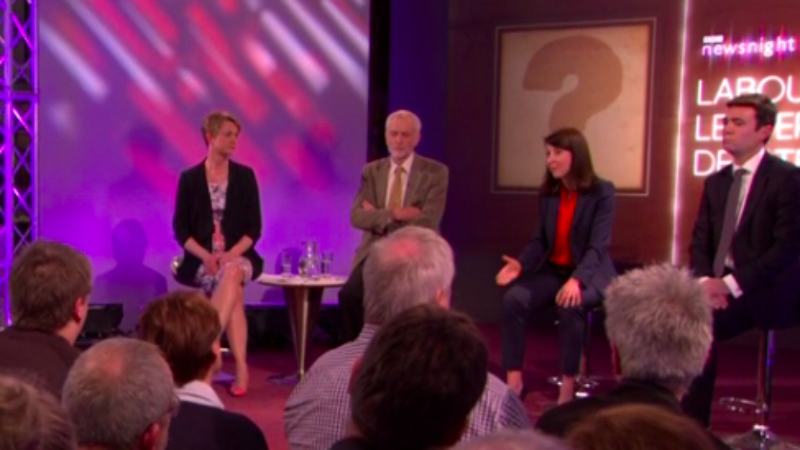
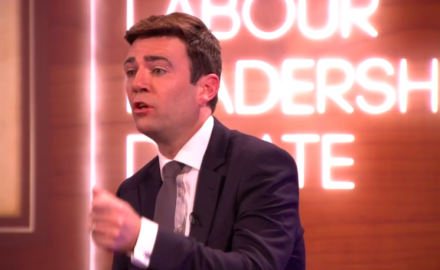
Andy Burnham
Burnham played to his roots, emphasising that he could reconnect the party with much of its traditional support that has been alienated – working class support for Labour has plummeted over the last ten years. He stressed that politics must come out of the “Westminster bubble” and believes he is the candidate to do that: “I go to the pub before Everton matches.”
The Shadow Health Secretary reiterated last week’s comment that the 2015 manifesto was the best he had ever stood on, saying he felt he had more to offer voters in his constituency in this election than previous ones. This could play well with Labour supporters, but will it with the wider public?
On the question of the deficit, Burnham said that Labour were wrong to have continued running a deficit in the middle part of the last decade. However, he rebuked the suggestion that Labour failed to fix the roof while the sun was shining, saying that they “literally fixed the rooves of schools and hospitals” that were in disrepair when they came to power in 1997. He also said he did not believe running a surplus should be a constant priority.
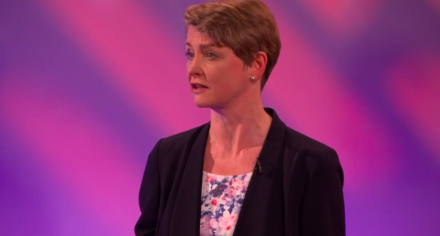
Yvette Cooper
The most interesting moment from Cooper came on the debate around welfare. She touched on personal experience, saying she had to take a year off work and claim benefits – and as such would never join in the “scroungers” language that so often rules the debate.
The Shadow Home Secretary struck a similar note on immigration, stressing that a “sensible debate” but again condemning the “arms race in rhetoric”. On these issues, is she signalling a run to the left of Burnham?
She reflected on her experience in office, pointing out that she was one of the ministers responsible for the implementation of Sure Start – a policy favourite with Labour grassroots.
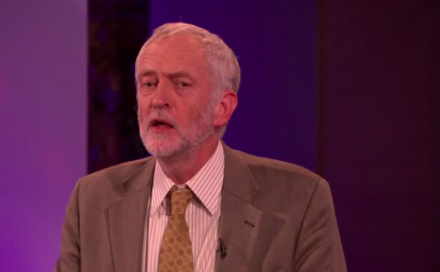
Jeremy Corbyn
Corbyn won the first applause of the night for, unprompted, attacking the decision to invade Iraq in 2003 – but given Miliband also opposed the war, is this really an issue that Labour will still be having to deal with in 2020?
The Islington MP certainly fulfilled his role as debate widener. He took the most anti-austerity position, as well as making the most pro-immigration and welfare arguments of any candidates.
He stated that there should be the opportunity to get rid of the leader every one or two years, as a way of reinstating democracy at the heart of the party.
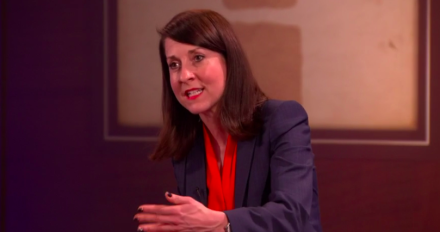
Liz Kendall
Kendall made her pitch as “the Labour leader that the Tories fear”. She said that she would resign as leader in three or so years if it looked like she would not win. Towards the end, as Andy Burnham said “the party comes first”, she was quick to retort: “No, the country comes first.”
Her claim that she did not have “baggage” was a thinly-veiled jibe at former ministers Burnham and Cooper, and did not go unnoticed by chair Laura Keunssberg.
She also asserted that the “whole welfare system is failing.” The Leicester West MP said there lacked both “incentive and help for people out of work to get into work.” This had been crystallised by a woman she met recently who had told her that “Labour doesn’t believe in work.”




More from LabourList
Which ministers have done the most and fewest broadcast rounds in year one?
‘Welfare reforms still mean a climate of fear. Changes are too little, too late’
Welfare bill: Which MPs are still voting against reforms?